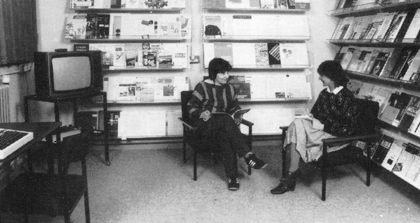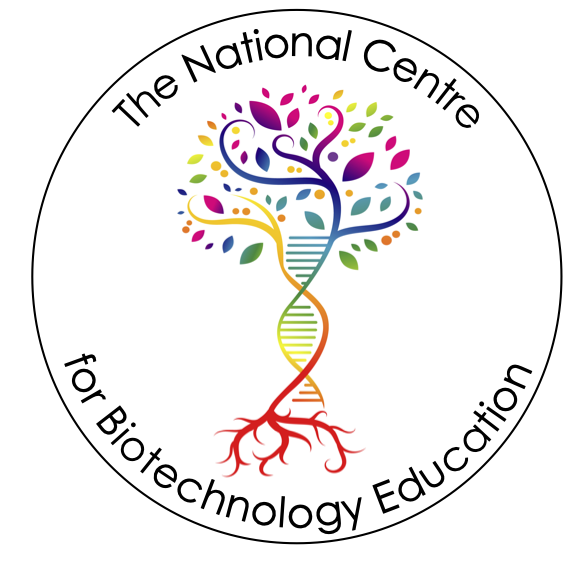The National Centre for Biotechnology Education

The NCBE began life as the National Centre for School Biotechnology (NCSB) in the Department of Microbiology at the University of Reading in 1984–5.
THE FIRST SCHOOL BIOTECHNOLOGY CENTRE
Writing in the inaugural issue of the NCSB’s [now defunct] Newsletter, Nobel laureate James Watson said: ‘Your National Centre for School Biotechnology represents the first national commitment to update pre-university teaching to take into account the dramatic rise of DNA science‘. The NCBE (which changed its name from NCSB in 1990) was for many years the only centre in Europe dedicated solely to biotechnology education at school level, although there are now several similar centres throughout the European Union and in the USA, notably The DNA Learning Center at Cold Spring Harbor Laboratory.
PROMOTING BIOTECHNOLOGY EDUCATION
As its name suggests, the NCBE’s role is to promote biotechnology education, not to promote biotechnology per se. Since its establishment in 1985, the Centre has gained an international reputation for the development of innovative educational resources and for giving impartial and authoritative advice to teachers.
WIDESPREAD SUPPORT
The Centre grew from a microbiology education project funded by the Society for General Microbiology (now known as the Microbiology Society). Shortly afterwards, money from the DTI’s Laboratory of the Government Chemist enabled the establishment of the National Centre for School Biotechnology. The Royal Society gave a grant for the conversion of rooms in the University of Reading’s former microbiology buildings. Funds from the (then) Manpower Services Commission also permitted the secondment of a teacher (John Schollar) to the Centre to organise and run training courses. The Gatsby Charitable Foundation bought the Centre its first van in 1987 so that courses could be conducted throughout the UK.
THE DTI BACKS OUT…
As economic recession hit in the early 1990s, the DTI’s financial support was dramatically reduced and the Centre was encouraged to become self-supporting. A name change to NCBE was intended to broaden the Centre’s range of clientele, although very few companies showed any interest in biotechnology training courses and schools remained the Centre’s principal focus. At the same time schools were beginning to manage their own finances and were uncertain of how to proceed. The Centre’s ‘Biotechnology Club’, which had been set up on DTI advice, attracted increasingly fewer customers. In 1990 the Centre’s founding Director (Paul Wymer) departed and the then head of the Department of Microbiology at the University of Reading, John Grainger, stepped into the role. The day-to-day running of the Centre, however, was carried out by the two assistant directors, John Schollar and Dean Madden. By 1992 all government funding had ceased and the NCBE was left to fend for itself.
THE CENTRE CARRIES ON
Despite its relatively low profile among the general public, the Centre has continued to prosper and is well-known to schools in the UK and further afield. A national poll conducted for The Wellcome Trust in 1999 showed that, along with Science and Plants for Schools, biology teachers considered the NCBE the best science education organisation in the United Kingdom.
FIVE MOVES IN 31 YEARS
When John Grainger retired in March 2001, the directorship of the Centre was formally taken over by John Schollar and Dean Madden. John Schollar retired in August 2018 and sadly Dean Madden passed away in January 2017. The NCBE was delighted to move to new purpose-built premises in the University’s School of Food Biosciences in September 2001. The creation of a new School of Pharmacy at the University forced the NCBE to move to new premises elsewhere on the campus in 2005, then to move again three years later.

